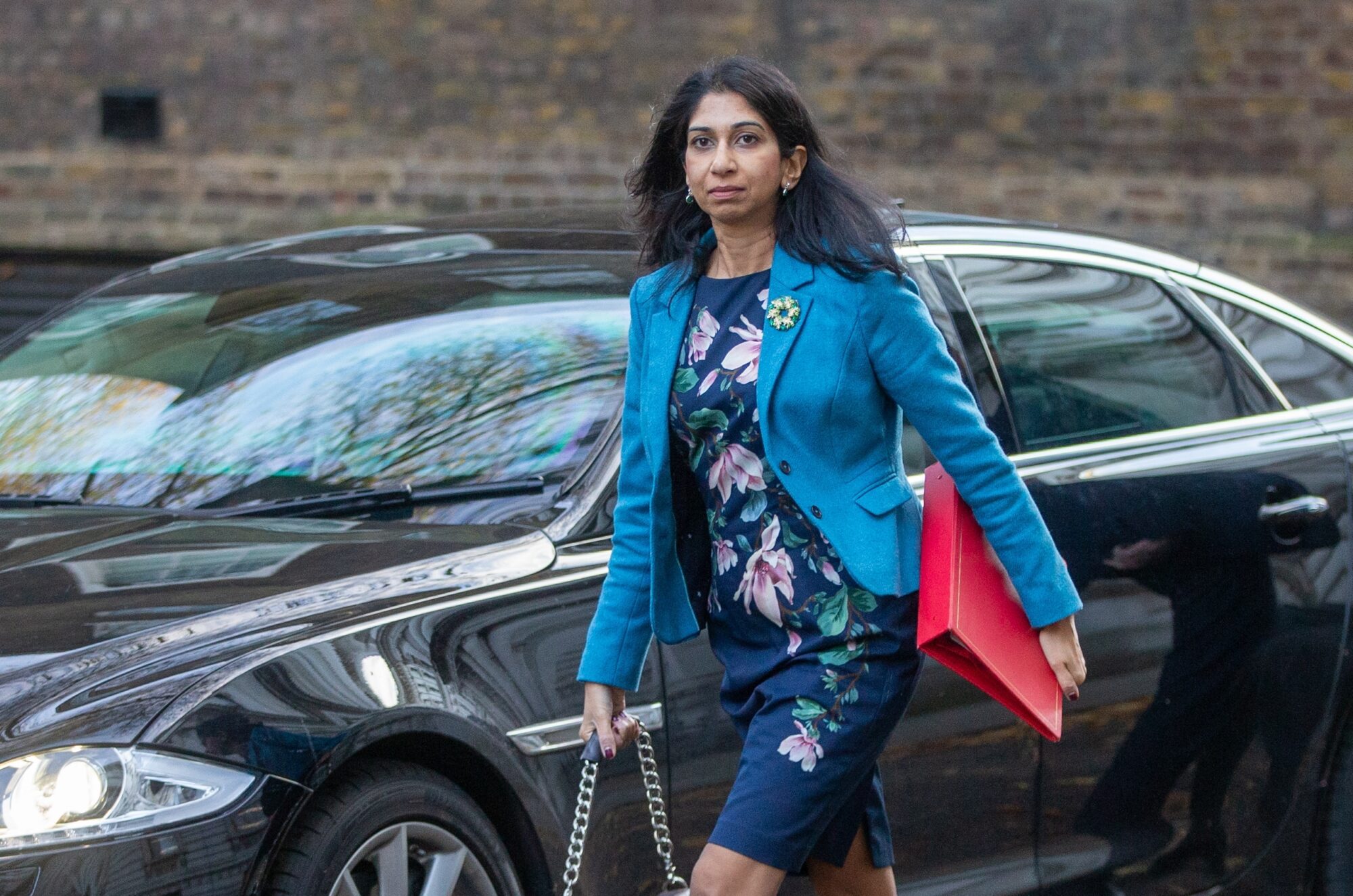
UK Homer Secretary Suella Braverman in Downing Street, London.
Photo: I T S / Shutterstock.com
Rishi Sunak’s government is working to make it clear that will not be responsible for any trouble caused by pro-Palestine protests on November 11th, Armistice Day.
Ministers have been pressuring London’s Metropolitan Police to ban planned protests and have used strong language to criticise its refusal. Home Secretary Suella Braverman wrote in The Times on Thursday that the Met “rightly” clamps down on aggressive right-wing demonstrations but “largely ignore[s]” law-breaking pro-Palestine “mobs,” suggesting that officers “play favourites when it comes to protesters.”
Sunak himself has also pulled Metropolitan Police Commissioner Sir Mark Rowley into a meeting, forcing the chief to postpone an event he was set to address, to say the force will be held “accountable” over his claim that remembrance events will be safeguarded.
But the question of where the power to stop these protests actually lies has been forgotten. Section 13 of the 1986 Public Order Act states that the Metropolitan Police commissioner can apply to the home secretary to prohibit public processions so as to prevent “serious public disorder.”
While the final decision would lie with the government were the Metropolitan Police to request a ban, Sir Mark said that in this case:
The intelligence surrounding the potential for serious disorder this weekend does not meet the threshold to apply for a ban.
The organisers have shown [a] complete willingness to stay away from the Cenotaph and Whitehall and have no intention of disrupting the nation’s remembrance events. Should this change, we’ve been clear [that] we will use [the] powers and conditions available to us to protect locations and events of national importance at all costs.
He added that while he accepts the “significant public and political concern” about the planned protests, “the laws created by parliament are clear”:
There is no absolute power to ban protest; therefore there will be a protest this weekend.
The law provides no mechanism to ban a static gathering of people. It contains legislation which allows us to impose conditions to reduce disruption and the risk of violence, and in the most extreme cases, when no other tactics can work, for marches or moving protests to be banned.
This suggests that the inability to ban the protests is, in fact, in the hands of the law-making government. This is much like how the Metropolitan Police defied criticism from the government for not arresting protesters who last month chanted “jihad, jihad, jihad,” because there was no legislation under which they could do so.
In almost all of this, the question of free speech appears to have been forgotten. Sunak failed to endorse Sir Mark’s decision not to ban the protests and said instead that the marches are “disrespectful.” But, as writer David Aaronovitch pointed out, “In a democracy ‘disrespectful’ is allowed and it is the job of authorities to defend the right to be disrespectful.”
In much the same vein, former Armed Forces minister and grandson of Sir Winston Churchill, Lord Soames, stressed that the demonstrations “must be allowed to go ahead, and I think it would be a great mistake to play politics with it,” not least because “a lot of people died during the [Second World] War to assert freedom.”
